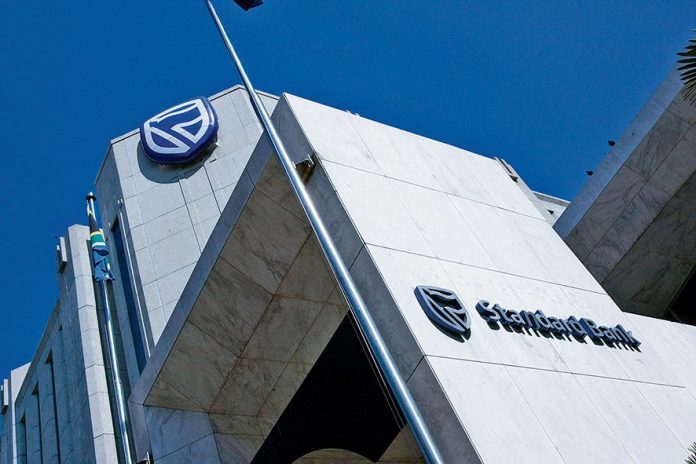Johannesburg – Financial services group and Africa’s biggest lender by assets, Standard Bank South Africa (SBSA) has taken a R270-million hit after four crafty businessmen exploited the bank’s online system to siphon money.
The bank has flagged Chinese nationals – Xinan Bao, Zhongyou Zhang, Guoyou Tang and Yufang Guo – as being behind the complex scheme.
The four men run cash and carry businesses in Gauteng and Rustenburg, North West.
The alleged fraud is said to have taken place since December 17 2020, with the bulk of the transactions having been executed in the period between Januarty 13 to 26 this year.
In an affidavit deposed by Standard Bank’s Bilal Kajee, a senior official in the fraud risk management department, the bank said the alleged perpetrators used a scam called “kite flying”.

“The SBSA account holders [the four men and their 11 companies] inexplicably identified a 45-minute window period on the applicant’s [SBSA] system when different day and night transaction files are processed and when the balances in customers’ accounts reflected the balances taking into account only the transactions in the day files,” reads the affidavit.
Also read: Zuma scrambles to pay back VBS loan to avoid losing his prized Nkandla home
“From those eleven accounts, funds were then shifted between them to enhance balances from which to complete the scam, but invariably they were then diverted into accounts held at the agent banks’ [Absa, Nedbank and Capitec] cryptocurrency traders, in the latter because they are able to draw the money in cryptocurrency wallets offshore.”
Kite flying is the fraudulent use of a financial instrument to obtain additional credit that is not authorised, according to Investopedia.
The scam encompasses two main types of fraud: issuing or altering a cheque or bank draft for which there are insufficient funds and misrepresenting the value of a financial instrument for the purpose of extending credit obligations or increasing financial leverage.
Kajee said the bank was running against time to recover its money.
It has now approached the high court in Johannesburg to compel Absa, Nedbank and Capitec to cooperate with it in obtaining information in regard to the identities of the recipients of the “diverted funds and the flow of the funds” and the recovery of the funds.
The lender is mostly worried about the four bitcoin accounts/ wallets the four men allegedly laundered the money to.
“From these wallets, the money is capable of being laundered, as it can be transferred to a foreign wallet, and can be drawn overseas,” Kajee wrote.
“The applicant is not aware of any assets of value that SBSA account holders own … the individuals concerned have links to a foreign country and could easily divert whatever funds remain and flee the country. The applicant is required to act expeditiously in a bid to recover whatever it can. Failing this, it stands to suffer absolute and permanent loss.”
Have you read: Tbo Touch centre of drama unfolding at Soweto TV
Ironically, China’s largest bank, the Industrial and Commercial Bank of China, purchased a 20% stake in Standard Bank in 2007 for $5.5-billion [R82-billion] representing the largest foreign direct investment in the country.
The deal was also the largest investment by a Chinese bank outside China at the time.
This is not the first time Standard Bank’s systems have been breached. In 2016, the lender’s computer system was hacked in a R300-million ATM fraud hit in Japan.
At that stage, it emerged that about 100 people reportedly used forged Standard Bank credit cards to withdraw ¥1.8-billion (over R250-million) from 1 400 ATMs in Tokyo and other areas in Japan in under three hours.
The SA Banking Risk Information Centre, in its annual crime report for 2019, found that although syndicates orchestrate crimes involving the theft/robbery of physical cash, the evolution of the digital landscape had seen the emergence of cybercrime, which was increasing at an “alarming rate”.
Ross Linstrom, Standard Bank’s spokesman, said the bank was investigating the matter. “Standard Bank is investigating fraudulent activity perpetrated against it by a small number of business clients.
Standard Bank was the victim of the fraudulent activity. No clients were impacted.

Standard Bank has reported the matter to the relevant authorities.
As there is now an ongoing investigation relating to the matter, no further details can be provided,” Linstrom said. The four businessmen did not respond to questions sent to them.
Follow @SundayWorldZA on Twitter and @sundayworldza on Instagram, or like our Facebook Page, Sunday World, by clicking here for the latest breaking news in South Africa. To Subscribe to Sunday World, click here.



